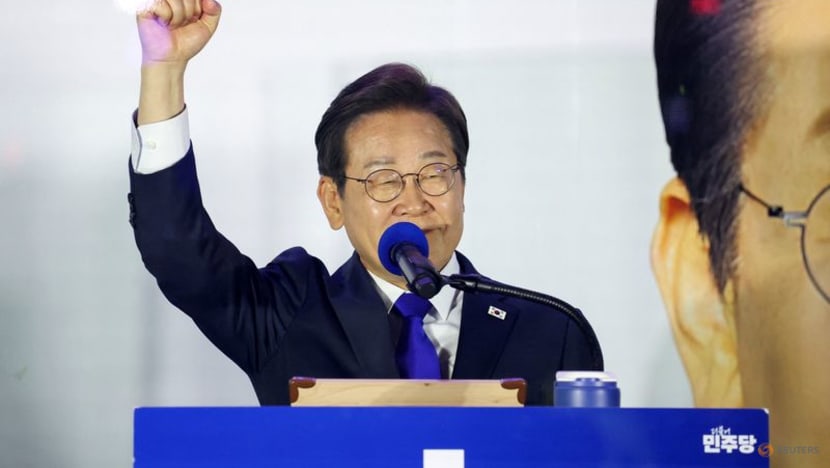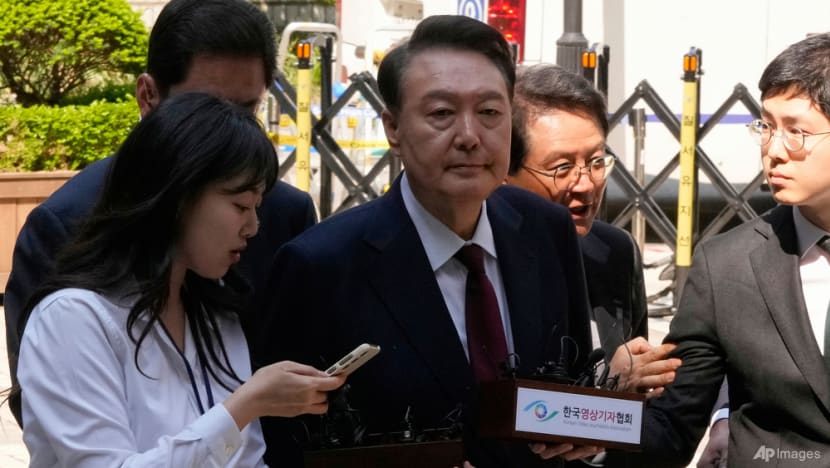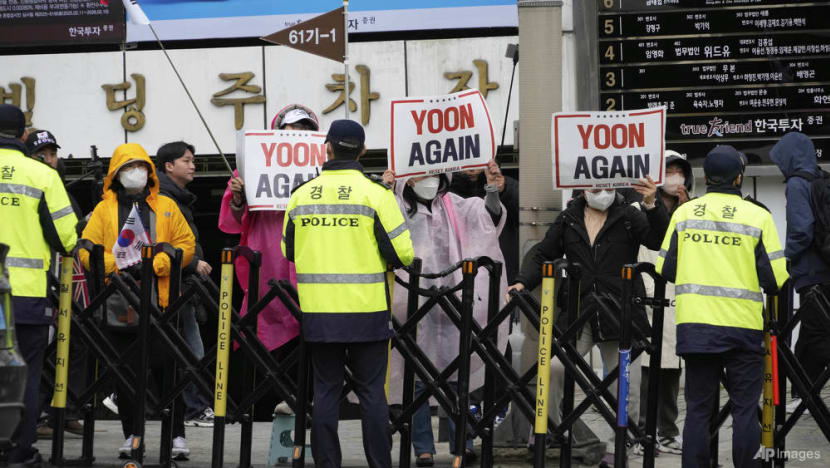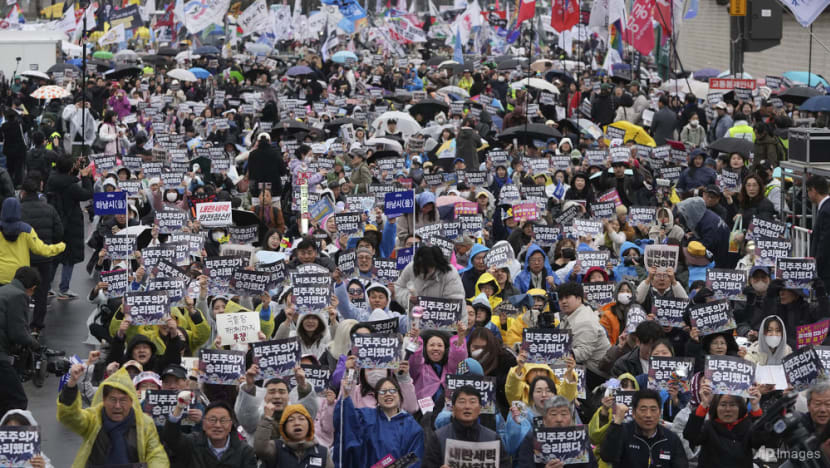Commentary: Not even an impeachment could dislodge South Korean right-wing voters
Lee Jae-myung won the South Korean presidency, but the real story is how the conservative bloc stood its ground even after its president was impeached for attempting martial law. Political science professor Robert Kelly weighs in.


This audio is generated by an AI tool.
BUSAN: When a president is impeached for attempting martial law, one would expect his party to collapse at the polls. In South Korea, it didn’t. Despite Yoon Suk Yeol’s dramatic fall, the conservatives performed far better than expected. That may be the most important story in South Korea’s snap election last week.
Left-leaning Lee Jae-myung won the presidency, as most polls predicted. He will enjoy a unified government. That is, his party – the Democratic Party of Korea – controls both the presidency and the legislature.
A unified government is rare in presidential democracies; the voters often return divided government. Mr Lee will face pressure from the left-wing of his coalition to move quickly on favoured issues, such as detente with North Korea.
A unified government opens a window until the next election – for the legislature in 2028 – for Mr Lee to govern aggressively from the left. Mr Lee does not need many conservative votes in the legislature. And the South Korean conservative party – of which Yoon was a member – faces an internal crisis.
It hesitated to fully condemn Yoon’s martial law power grab. It is probably best for South Korea’s long-term democratic stability that the left won. The right needs to publicly and more credibly commit to democratic processes before it can be trusted with power again.
Nevertheless, a robust left-wing policy drive on the back of unified progressive government would be a mistake. Despite its defeat in the election, the South Korean right significantly overperformed expectations. Mr Lee won legitimately and is the country’s rightful president, but he does not have a mandate for wide-ranging liberal governance.
SOUTH KOREA’S CHRONIC POLARISATION
In 1974, US President Richard Nixon resigned the presidency three months before Congressional elections. Mr Nixon had been disgraced by Watergate scandal and would have been impeached had he not resigned.
Mr Nixon was a Republican, and his departure led to a massive Republican defeat that year – what political science refers to as a “wave election” (for the Democrats). Then, there were enough swing voters to swing hard against the Republican party, punishing it for Watergate.
This did not happen in South Korea.
Despite a conservative scandal equal to or worse than Watergate – it is unclear how long Yoon intended to suspend constitutional governance – almost no conservative or independent voters defected to Mr Lee.
This is remarkable, and somewhat worrisome. It suggests that right-left polarisation in South Korea is so intense that even a partisan challenge to foundational democratic values cannot shake loose many voters from their ideological camps.
Thankfully for South Korean democracy, the South Korean left did squeak into a majority.
Mr Lee polled 49.42 per cent of the vote, and a factional leftist candidate received 0.98 per cent of the vote, totaling 50.4 per cent of the vote for parties which publicly and vigorously rejected the martial law declaration. The two candidates of the right polled a combined 49.49 per cent of the vote.
And while both did eventually condemn the martial law declaration, they danced around the topic as much as possible to avoid alienating diehard Yoon supporters. A substantial slice of South Korean opinion – at least 30 per cent – rejected Yoon’s impeachment, despite a large majority impeachment vote in the legislature and a unanimous removal vote by the country’s high court.
LEE SHOULD GOVERN HIS FRACTURED COUNTRY WITH CARE
Deep partisan polarisation – unmoved even by a constitutional crisis – is deeply worrisome. Divisions of that depth can fuel violence or civil conflict. Thankfully, South Korea is not at that point; its institutions held up robustly under the pressures of Yoon’s power grab and the subsequent impeachment process.
But the obvious policy implication of such deep, persistent division of opinion is that Mr Lee should govern cautiously. He would be wise not to exploit the current window of unified leftist government to steamroll the right.
His progressive presidential predecessor – Moon Jae-in – did that. Mr Moon won with just 41 per cent of the vote in 2017, but he governed as if he had won a wave election. He pursued a North Korea detente policy that particularly deeply alienated South Korean conservatives, and he did not consult them at all.
The result was worsening polarisation and wild conspiracy theories on the right that Mr Moon was a North Korean operative.



Mr Lee will want to avoid making the same error. There may be value in looking for issues with some nonpartisan or transpartisan valence to build consensus for his presidency before pushing on more divisive policies.
The hard right and Yoon partisans will reject cooperation with him, of course, but there will be some moderate and swing voices Mr Lee can attract to give his policy platform bipartisan appeal.
For example, US President Donald Trump’s tariff war strikes at South Korea’s export-oriented economy. All serious elements of South Korean society want that resolved. Mr Lee could start with that, enjoying broad support for some kind of trade deal with the Americans.
Mr Lee enters office with a clean slate and a clear victory after months of political contention. But he did not, perhaps surprisingly, win anything close to a mandate.
South Korea is sharply and persistently divided. Mr Lee should remember that when the activists of his coalition encourage rapid action which will breed backlash and further stasis.
Robert Kelly (@Robert_E_Kelly) is a professor of political science at Pusan National University. He writes a monthly column for CNA, published every second Monday.

















